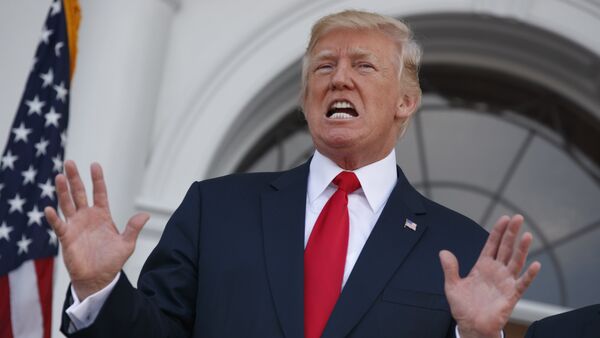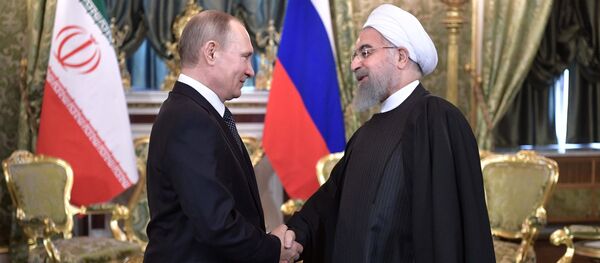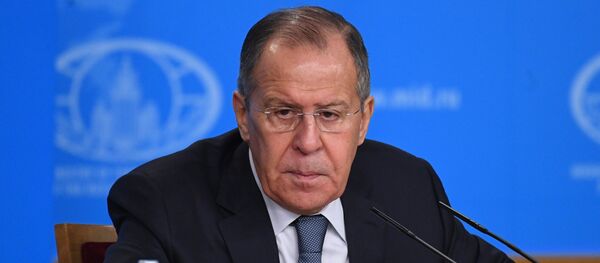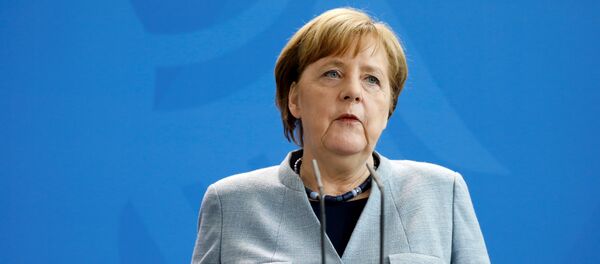New Delhi (Sputnik) — In conversation with Sputnik, Indian analyst Major General B. K. Sharma (Retired), who heads the Centre for Strategic Studies at the United Service Institution in New Delhi says the event is a disruptive moment in international geopolitics, as it has drawn a wedge in the US-led coalition system and threatens to perpetuate conflicts in West Asia and scuttle the denuclearization dialogue on the Korean Peninsula.
READ MORE: EU's Juncker: Europe Must Replace US as Leader After Trump Quits Iran Deal
Sputnik: How do you see the announcement and its impact on international geopolitics?
Gen. B. K. Sharma: This was part of Trump's election manifesto and since then he spared no opportunity to call it a "decaying, rotten, horrible and disastrous" deal. He has accused Iran of continuing with developing nuclear weapons and ballistic missiles, besides supporting its terrorist proxies in West Asia. He ignored IAEC certifications and confirmation from his own intelligence agencies that Iran was in compliance with JCPOA or pleas from other signatory states to honor the deal.
Second, the world is now uncertain about the fate of other treaties and agreements and whether America can provide leadership in maintaining a rules-based international order.
Third, Trump has put US diplomacy on a collision course with its closest allies; it will drive a wedge in the US-led alliance system. With the resumption of economic sanctions, the business prospects of Western companies will get hampered and give rise to disputes at the WTO. Foreign companies have been asked to wind up business transactions with Tehran within six months; this will have an adverse impact on the process of globalization.
Fourth, Iran could resume its nuclear weapons program and that, in turn, will trigger a nuclear arms race in the region.
Fifth, it will perpetuate conflicts in West Asia and scuttle denuclearization dialogue on the Korean Peninsula.
READ MORE: EU Can't Save Iran Nuclear Deal After US Exit — Top Iranian Military Leader
Sputnik: India has a major stake in Iran, whether it is the Chabahar port development project or energy relations. What kind of approach do you foresee from the Indian side with Iran following this development?
Gen. B. K. Sharma: The Indian prime minister in 2015 had hailed the deal describing it as a "triumph of sagacious diplomacy." New Delhi supports Iran's right to nuclear energy for peaceful purposes. India is neither a signatory to the deal nor has the leverage to make president Trump change his decision on the deal. India strongly favors continuation of the deal and resolution of differences through dialogue. Any adversarial US-Iran relation does not augur well for India's strategic interests in Afghanistan, Central Asia, and West Asia or for its energy security. With the re-imposition of economic sanctions, India will find it difficult to make payments to Iran for energy imports. Iran is India's third-largest oil supplier after Iraq and Saudi Arabia. With the sanctions in place, Indian private companies and international enterprises will be reluctant to participate in infrastructure development in Chabahar or trade along the International North-South Transit Corridor, or for that matter, along Chabahar transit route.
READ MORE: EU Should Resist US Pressure Over Iran Nuclear Deal — Analysts
Sputnik: Of late, Iran has been pursuing China and Pakistan to participate in its development projects. With this development, would we see a new axis in central Asia?
Gen. B. K. Sharma: These developments do not augur well for India's strategic interests in Afghanistan and Eurasia. Considering that in the foreseeable future, Pakistan will not provide India access to Afghanistan, connectivity through Iran becomes extremely crucial for India to access the region. Central Asia is the center of gravity of continental economic corridors of Belt and Road projects. China has already captured the economic space in Central Asia, whereas India remains a peripheral player. If the alternate transit corridors are not operationalized, then the landlocked Central Asia countries will have to rely on the Karakoram Highway to access the Arabian Sea. As far as Afghanistan is concerned, the strategic interests of Russia, China, Iran and Pakistan are already aligned vis a vis the US and India. India faces a daunting task to sustain its engagement in Afghanistan.
Gen. B. K. Sharma: Russia is India's time-tested friend and the two countries enjoy a special and privileged strategic partnership. India deeply appreciates Russia's help in developing our strategic and defense sectors, sponsoring our candidature at the SCO and UNSC. India, Russia and China are members of RIC, BRICS and the SCO. Russia strongly favors a multipolar world and would therefore like India to play the role of balancer in Eurasia and the Indo-Pacific. While there may be some tactical difference creeping into the Indo-Russian relations; our long-term strategic interests are fundamentally aligned. Russia can play a significant role in nudging New Delhi and Beijing to formulate a new "modus vivendi" and become partners of choice in ushering sustainable peace, security and development in Eurasia, particularly Afghanistan.
The views and opinions expressed by Major General B. K. Sharma (Retired) in this article are those of the speaker and do not necessarily reflect the position of Sputnik.







